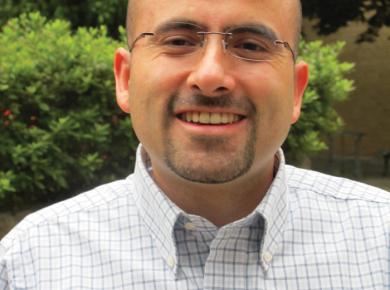Posted: January 13, 2014
Some years ago a woman with a foreign accent – a friend of mine – knocked on the door of one of our churches in Bogotá. That church’s pastor – another friend of mine – opened the door. The woman was evangelizing that neighborhood and started to talk with my friend without knowing about his Christian commitment. He invited her to talk, thinking he would give testimony to this foreign missionary that maybe belonged to some strange religion.
They were talking for several minutes before they discovered their common faith. The surprise grew even bigger when they realized they both were members of the same tradition – Anabaptism – and, more than this, that they were members of the same Mennonite denomination. She was shocked to learn that there are around 12 Anabaptist churches in Bogotá. For several years this woman, who had come from a European country, had been serving in this city as a missionary under the auspices of her Mennonite church, without being in touch with Colombian Mennonites of her same church family.
I would like to say that the story of my pastor-friend and his European missionary visitor is just an isolated case. However, similar stories are repeated again and again around the world in places where Anabaptist churches and agencies serve without knowing what other members of our global communion in the same place are doing. Anabaptist presence lacks power and impact when worldwide communication among our members and institutions is not fluid. This is one of the reasons why Mennonite World Conference has revisited and revised its communication strategy. This issue of Courier/Correo/Courrier describes how that new strategy is being implemented by harnessing the power of new media and prudently investing our resources where they’re needed most. The result, we hope, will be better communication among our members around the world.
Communication has the same root as other important words in MWC’s mission and vision: communion and community. It is not possible to have real communion with those with whom we do not communicate. It is impossible to build a global community if we do not talk each other on a regular basis. It is not possible to rejoice with those who rejoice and weep with those who weep (Romans 12:15), if we do not know their joys as well as their sufferings.
Good communication makes possible the sharing of resources, experiences, gifts and weaknesses in a way that strengthens our service and testimony. Good communication enables us to network teams for more efficient and effective work in church planting, peacemaking, social development and education. What could happen if this work is done in a multicultural way and as an expression of Christ’s church? What could happen if we see our global family as an organic body that is interconnected and intercommunicated, instead of just a network of institutions? What could happen if we avoid duplication of efforts, while celebrating differences and diversity?
Some weeks ago I went to a meeting of Mennonite pastors in Bogotá. There were my two friends: the pastor and the European missionary. These two leaders have learned to communicate and to work together. As a result, the church has grown in many ways. Can we imitate their example? Can we keep building a global community through better communication? May we be one, so that the world may believe that Jesus was sent by our Father (John 17:21).
César García, MWC General Secretary, works out of the head office in Bogotá, Colombia.

Comments: